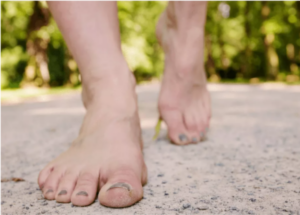When it comes to personal hygiene and self-care, many individuals turn to various tools and gadgets to help maintain cleanliness and comfort. A foot scrubber is one such popular device that is designed to exfoliate and cleanse the feet, providing a spa-like experience in the comfort of one’s home. However, users might wonder whether their choice of foot scrubber could inadvertently damage the surfaces in their bathroom, specifically the shower tiles. The concern is not unfounded, as the interaction between a foot scrubber and the shower environment could have unintended consequences for the longevity and appearance of tiled surfaces.
This article delves into a range of factors that could influence whether a foot scrubber might harm your shower tiles. We begin by examining the **Material Composition of the Foot Scrubber**, as the substances used to create the scrubber can affect its hardness and potential for causing scratches or other damage. Next, we explore the **Durability and Hardness of Shower Tiles** to understand how resilient they are to wear and tear and what kinds of materials are likely to cause them harm.
The discussion moves on to the **Chemicals in Foot Scrubber Cleansers**, considering whether the soaps or solutions used with the scrubber could have corrosive properties that might degrade tile glazing or grout. Another crucial aspect is the **Frequency and Method of Use**—how often and with what intensity the scrubber is used can greatly impact its effect on your shower tiles.
Lastly, we will assess the **Potential Abrasiveness of Scrubber Surfaces**. Even if a scrubber is composed of seemingly innocuous materials and used with gentle, non-corrosive cleansers, the texture of the scrubber itself could pose a risk to the smooth surface of shower tiles. By understanding these subtopics, readers will be equipped with the knowledge they need to choose a foot scrubber that maintains both their personal cleanliness and the pristine condition of their shower tiles.
Material Composition of the Foot Scrubber
When considering the potential harm a foot scrubber might do to shower tiles, it is essential to understand the material composition of the foot scrubber. Foot scrubbers are designed in a variety of materials, ranging from soft, pliable silicones to tougher, more abrasive materials like pumice or plastic bristles.
The softer materials, such as silicone and rubber, are generally considered safe for most surfaces, including shower tiles. Silicone scrubbers are gentle, flexible, and less likely to cause scratches or damage to the tile glaze. They are often designed with ergonomics in mind and may also include antimicrobial properties to help maintain a hygienic environment in your shower.
On the other hand, foot scrubbers with harder materials, such as pumice or stiff bristles, pose a greater risk of scratching or wearing down the finish on your shower tiles, especially if they are used with excessive force or if the tiles are of a softer variety. Pumice, in particular, is a volcanic rock with a highly abrasive surface that is excellent for removing dead skin but can be damaging if used improperly on delicate surfaces.
In addition to the inherent material properties, the design of the foot scrubber can influence its potential to cause harm. For example, a scrubber with a flat surface may distribute pressure more evenly across the tile, reducing the risk of scratches. Conversely, a scrubber with a pointed or uneven surface may focus pressure on a smaller area, increasing the chance of damage.
Ultimately, to ensure that your foot scrubber will not harm your shower tiles, it’s advisable to choose a scrubber made from materials that are compatible with the type of tiles you have. If you have any doubts about the suitability of a particular foot scrubber, it’s always a good idea to perform a small patch test in an inconspicuous area of your shower to check for any adverse effects before using it regularly.
Durability and Hardness of Shower Tiles
The durability and hardness of shower tiles are essential factors to consider when questioning if a foot scrubber will cause harm. Shower tiles are typically made from materials like ceramic, porcelain, or natural stone, each having different levels of resistance to scratches and abrasions. Porcelain tiles, for instance, are known for their dense, hardwearing properties, often making them more resistant to damage than ceramic tiles. On the Mohs scale, which measures the hardness of minerals, porcelain tiles often rank at around 7 or 8, indicating a high resistance to scratches.
Natural stone tiles, such as marble or slate, may require more careful consideration. While they can add a luxurious feel to any bathroom, they are generally more porous and can be susceptible to scratching, especially if they are not properly sealed. It is essential to know the type of stone and the sealant used to understand how durable the tiles are.
When using a foot scrubber, it is crucial to consider the tile’s hardness and the pressure applied during scrubbing. Excessive force or a very abrasive scrubber can potentially damage even the most durable tiles over time. To minimize the risk of harm, it is recommended to select a foot scrubber that is appropriate for the type of shower tiles you have. For instance, choosing a soft, non-abrasive material for the scrubber can help ensure that it cleans effectively without causing unwanted scratches or marks.
In addition to material selection, regular maintenance of both the tiles and the foot scrubber can play a role in preserving your shower’s condition. Sealing stone tiles periodically can help protect them from damage, while cleaning the foot scrubber after use can prevent the buildup of grit or other particles that might scratch the tiles.
Overall, while a foot scrubber is unlikely to harm shower tiles that are of high quality and properly maintained, it is always best to use such products with care and consideration for the materials in your bathroom.
Chemicals in Foot Scrubber Cleansers
When considering the safety of shower tiles in relation to the use of a foot scrubber, it’s important to examine not just the physical attributes of the foot scrubber, but also the chemical components of the cleansers used with it. Item 3, “Chemicals in Foot Scrubber Cleansers,” is an essential subtopic because certain chemicals can cause harm to shower tiles, particularly if they are not pH-balanced for the specific materials used in the tiles.
Most shower tiles are made from materials like ceramic, porcelain, or natural stone, and each has different levels of resistance to chemical exposure. For instance, natural stone tiles are more porous and sensitive to acidic cleansers, which can etch the surface and cause permanent damage. On the other hand, ceramic and porcelain tiles are generally more resistant to chemicals due to their glazed finish, but they can still be affected by harsh chemicals over time, leading to discoloration or the degradation of the grout.
When using a foot scrubber with an attached cleanser, or when applying a separate cleanser, it is crucial to check that the product is safe for use on your specific type of tile. Many manufacturers formulate shower and tile cleaners to be non-abrasive and non-acidic to ensure they are safe for various surfaces, including tiles, grout, and even glass.
Moreover, users should also consider the environmental impact of the chemicals they wash down the drain. Eco-friendly and biodegradable cleansers are available that minimize harm to the environment while still providing effective cleaning power.
In summary, to protect your shower tiles from potential chemical damage, always use cleansers that are recommended for your type of tile. Regular cleaning with the appropriate products will help maintain the integrity and appearance of your shower tiles without risking harm due to harsh or unsuitable chemicals.
Frequency and Method of Use
When considering whether a foot scrubber will harm shower tiles, the frequency and method of use are significant factors. Using a foot scrubber sparingly will likely have a minimal impact on the tiles. However, repeated and forceful use may gradually wear down the finish on the tiles, especially if the scrubber has an abrasive surface. It’s not just the force, but also the way in which the foot scrubber is used that matters. If the user is scrubbing back and forth with a lot of pressure, the risk of scratching or wearing down the surface of the shower tiles increases.
Moreover, it’s important to consider the technique used when scrubbing. For instance, a gentle circular motion is less likely to cause harm than a vigorous back-and-forth scrubbing action. Users should also avoid pressing the foot scrubber against the tiles with excessive force. A light touch is typically sufficient to clean the feet and will be much gentler on the shower tiles.
In addition to the physical use of the foot scrubber, the frequency of cleaning and maintenance of both the scrubber and the shower tiles can affect their longevity. Regular cleaning of the shower tiles can prevent the buildup of dirt and grime, which might otherwise require more aggressive scrubbing. Similarly, keeping the foot scrubber clean will ensure that it works effectively without needing to apply too much pressure.
Finally, it’s worth noting that proper rinsing after each use can help maintain both the foot scrubber and the shower tiles. Residual cleansers or debris from the scrubber can cause damage over time if not thoroughly washed away. Users should make sure to rinse the scrubber and the shower area with plenty of water after each use to keep the surfaces in good condition.
Potential Abrasiveness of Scrubber Surfaces
When considering the impact of a foot scrubber on shower tiles, one crucial aspect is the potential abrasiveness of the scrubber surfaces. Abrasiveness refers to the capability of a material to scratch or wear down another surface through friction. This characteristic is particularly important when the scrubber comes into contact with shower tiles, as excessive abrasion can lead to damage to the finish or even the structural integrity of the tiles.
Shower tiles are generally designed to be durable and resistant to wear. However, they can vary widely in terms of material and coating. Ceramic and porcelain tiles are commonly used and are known for their hardness, while natural stone tiles such as marble or slate may require more delicate care due to their softer nature. Regardless of the type, all tiles have a protective glaze or sealant that can be compromised by harsh scrubbing.
The scrubber surface itself can be made from various materials, including plastic, silicon, pumice, or metal. Plastic and silicon are generally considered less abrasive and are less likely to cause damage to tiles. Pumice, while excellent for removing dead skin from feet, can be much rougher and should be used with caution. Metal scrubbers are usually too harsh for both skin and tile surfaces and are not recommended in this context.
It’s also important to note that the damage may not occur immediately but could be the result of cumulative effects over time. Consistent use of an overly abrasive scrubber can gradually wear down the protective layer on tiles, leading to dullness, increased porosity, and eventually, cracks or chips.
In conclusion, to ensure the longevity of shower tiles while using a foot scrubber, it is advisable to select a scrubber with a gentle surface material, be mindful of the pressure applied during use, and to regularly inspect both the scrubber and the tiles for signs of wear. If in doubt, testing the scrubber on a small, inconspicuous area of tile can provide insight into whether the scrubber might cause damage over time.




